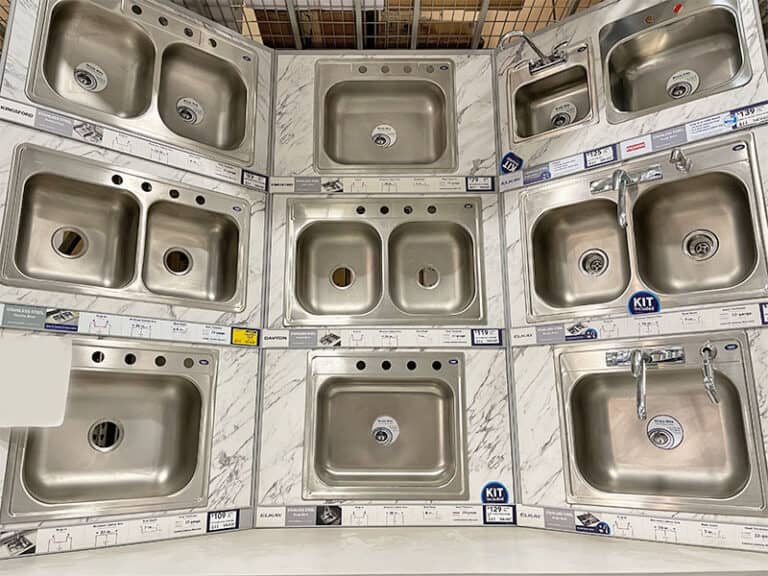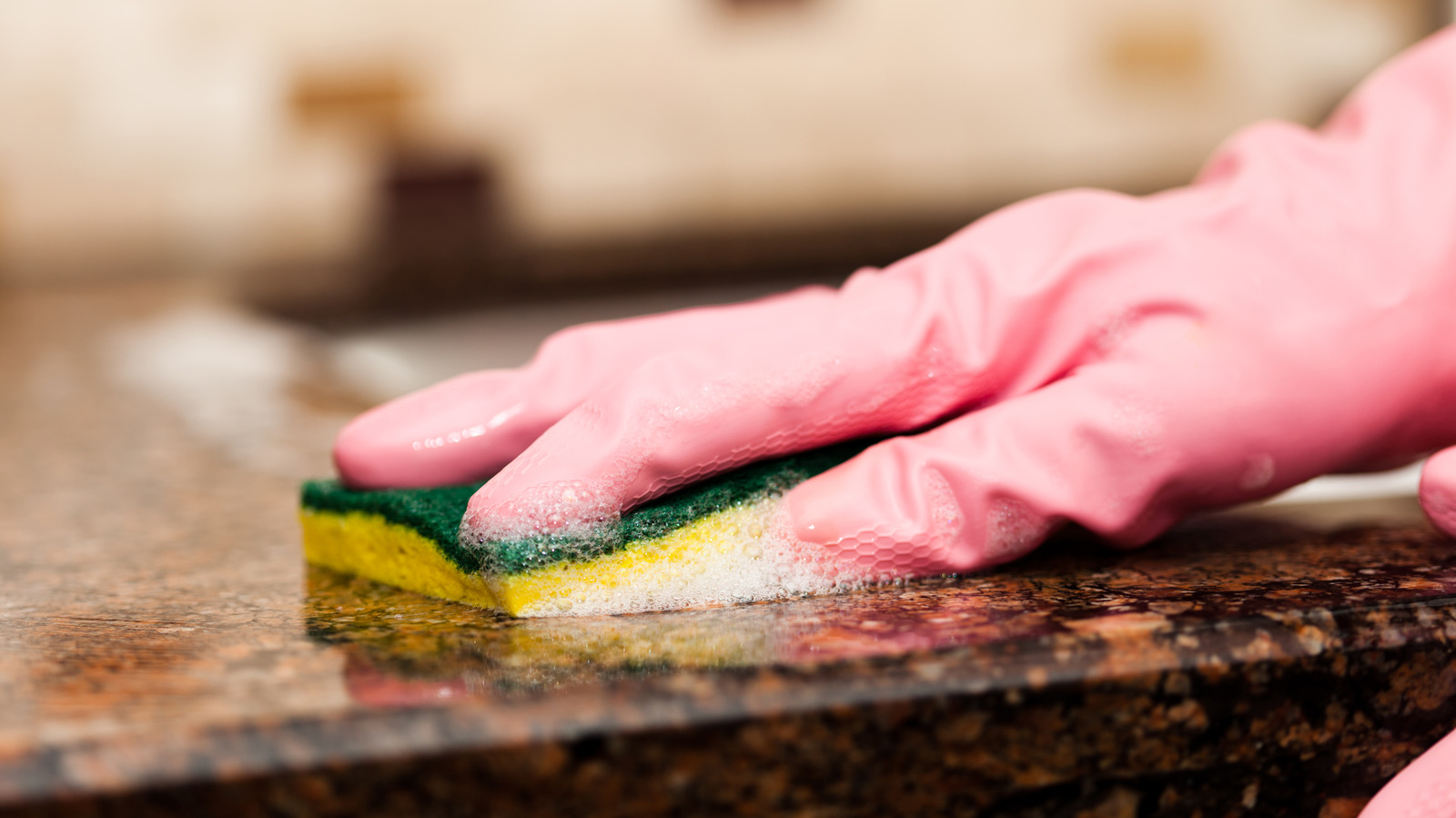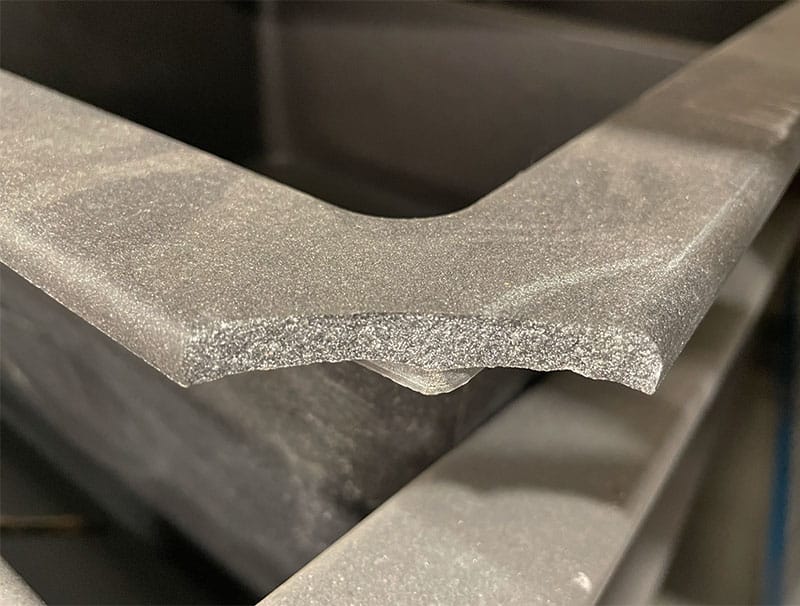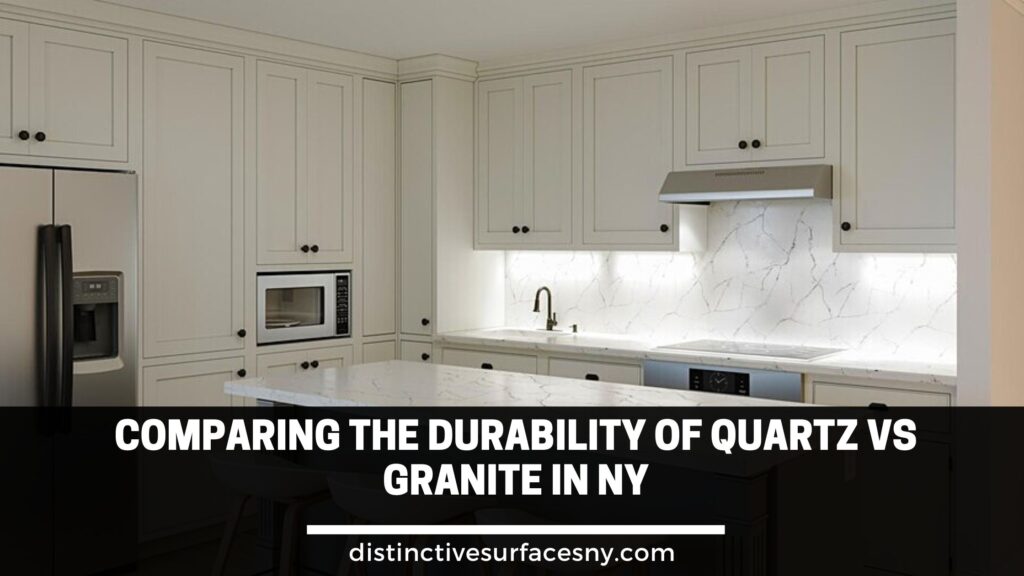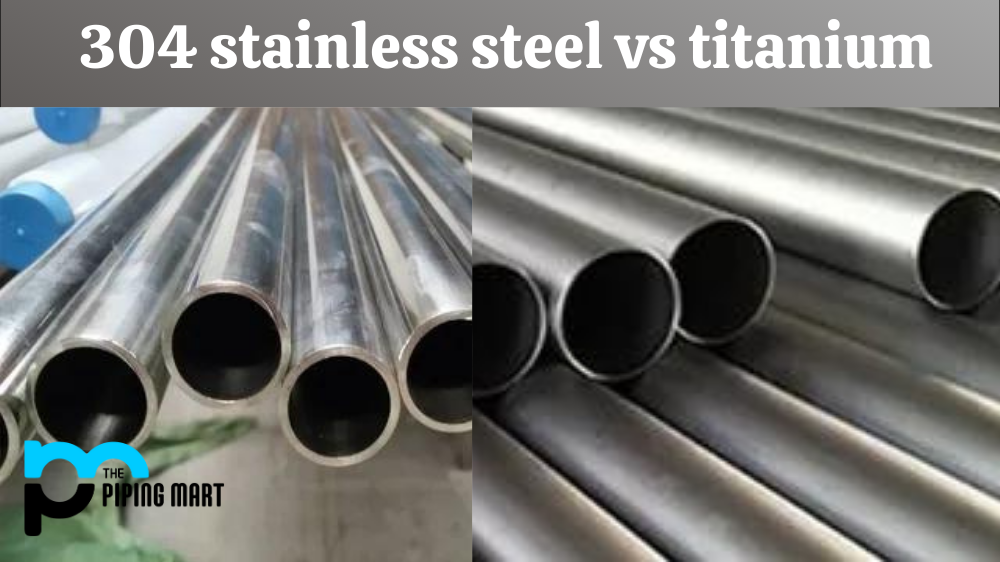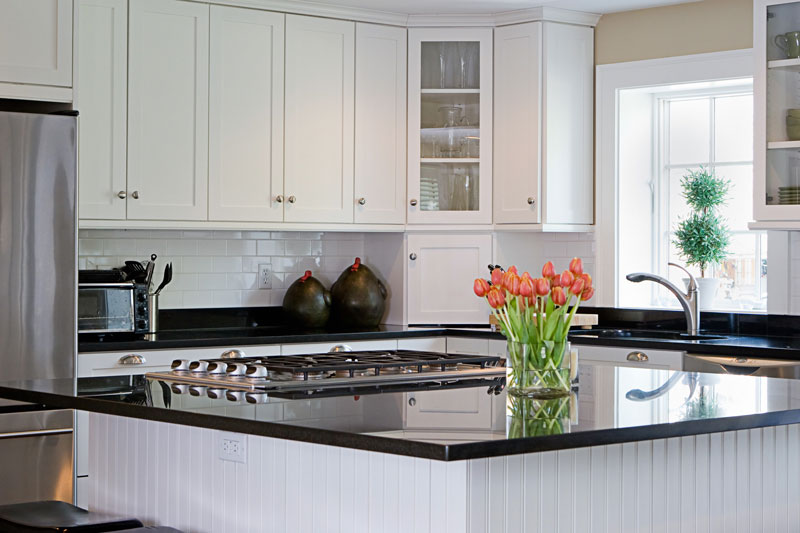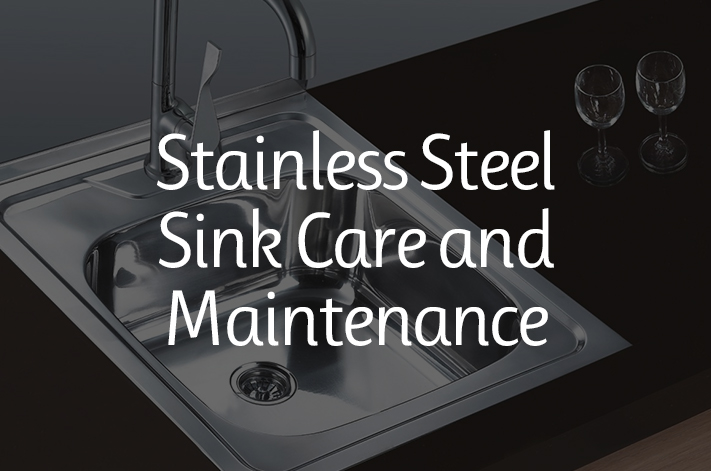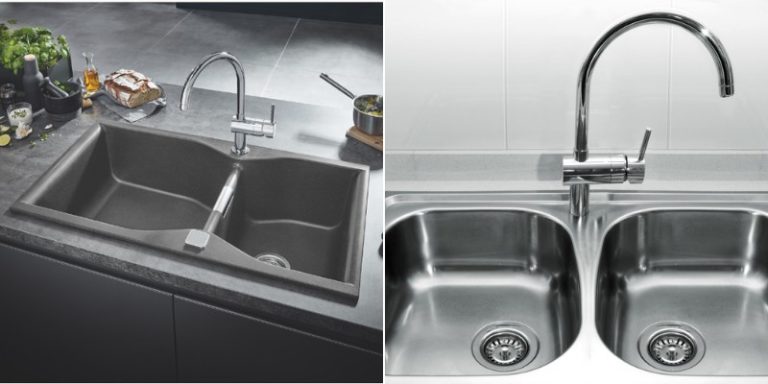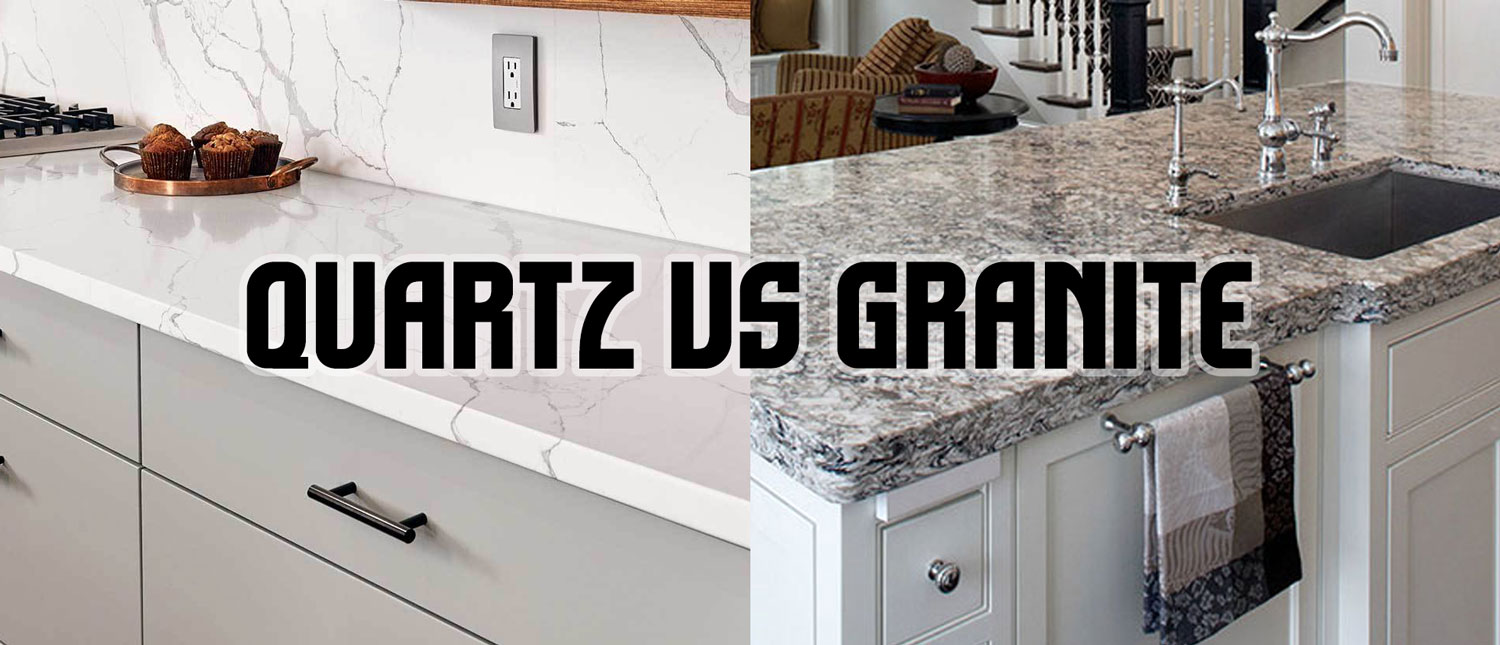When it comes to kitchen sinks, there are two popular materials that homeowners often have to choose between: granite and stainless steel. Both have their own unique benefits and drawbacks, and it can be challenging to decide which one is the right fit for your kitchen. In this article, we will go over the top 10 main differences between granite and stainless steel kitchen sinks to help you make an informed decision.Granite vs. Stainless Steel Kitchen Sinks: What's the Difference?
The eternal question of which material is better for a kitchen sink, granite or stainless steel, is a difficult one to answer definitively. It ultimately depends on your personal preferences and needs. While granite sinks offer a more luxurious and elegant look, stainless steel sinks are known for their durability and affordability. Let's dive deeper into the pros and cons of each material to determine which one may be better for you.Granite vs. Stainless Steel Kitchen Sinks: Which is Better?
Before we get into the specifics, let's first discuss the main differences between granite and stainless steel sinks. Granite sinks are made from a combination of granite stone dust and resin, giving them a natural and unique appearance. On the other hand, stainless steel sinks are made from a single sheet of metal, providing a sleek and modern look. Both materials have their own set of advantages and disadvantages, so it's essential to consider these factors before making a decision.Comparing Granite and Stainless Steel Kitchen Sinks
Granite sinks are known for their durability and resistance to scratches, stains, and heat. They also come in a variety of colors and patterns, making them a versatile option for any kitchen design. However, they can be quite heavy and may require professional installation, and their porous surface can be prone to water spots and bacteria growth if not sealed and cleaned regularly. On the other hand, stainless steel sinks are lightweight, easy to install, and can withstand heavy use without denting or scratching. They are also non-porous, making them resistant to bacteria growth and easy to clean. However, they can be noisy and may show water spots and scratches more easily than granite sinks.Pros and Cons of Granite and Stainless Steel Kitchen Sinks
When deciding between granite and stainless steel sinks, it's essential to consider your budget, style preferences, and how you use your sink in your daily life. If you have a busy household and need a sink that can handle a lot of wear and tear, a stainless steel sink might be the better option. However, if you prioritize aesthetics and are willing to put in the extra effort to maintain it, a granite sink may be the right choice for you.Choosing Between Granite and Stainless Steel Kitchen Sinks
One of the most significant differences between granite and stainless steel sinks is their maintenance and care requirements. Granite sinks require regular sealing to prevent staining and bacteria growth, while stainless steel sinks only need to be cleaned with soap and water. Additionally, granite sinks are more prone to chipping and cracking, while stainless steel sinks are more durable and can handle heavy use without damage.Understanding the Differences Between Granite and Stainless Steel Kitchen Sinks
There is no clear winner when it comes to deciding which material is best for a kitchen sink. Both granite and stainless steel offer their own set of advantages and disadvantages, and ultimately, the decision will depend on your personal preferences and needs. If you prioritize durability and ease of maintenance, a stainless steel sink may be the way to go. However, if you want a more luxurious and unique look, a granite sink may be the better choice.Granite vs. Stainless Steel: Which Material is Best for Your Kitchen Sink?
In terms of durability, stainless steel sinks are the clear winner. They are resistant to scratches, dents, and heat, making them perfect for busy kitchens. Granite sinks, on the other hand, are more prone to chipping and cracking, and their porous surface can be susceptible to stains and bacteria growth if not properly cared for. However, with regular maintenance and care, both materials can last for many years.Comparing the Durability of Granite and Stainless Steel Kitchen Sinks
As mentioned earlier, granite sinks require regular sealing to prevent staining and bacteria growth. They should also be cleaned with a non-abrasive cleaner to avoid scratching the surface. On the other hand, stainless steel sinks only require regular cleaning with soap and water to maintain their shine. To avoid water spots, it's best to dry the sink after each use. Both materials should also be protected from harsh chemicals and abrasive materials.Maintenance and Care for Granite vs. Stainless Steel Kitchen Sinks
Cost is often a significant factor when deciding between two materials, and the same goes for kitchen sinks. Generally, stainless steel sinks are more affordable than granite sinks, making them a popular choice for budget-conscious homeowners. Granite sinks, on the other hand, can be quite expensive, especially when considering the cost of installation. However, if you're willing to invest in a granite sink, the unique and elegant look may be worth the extra cost.Cost Comparison: Granite vs. Stainless Steel Kitchen Sinks
The Advantages of Choosing a Granite Kitchen Sink

Introduction
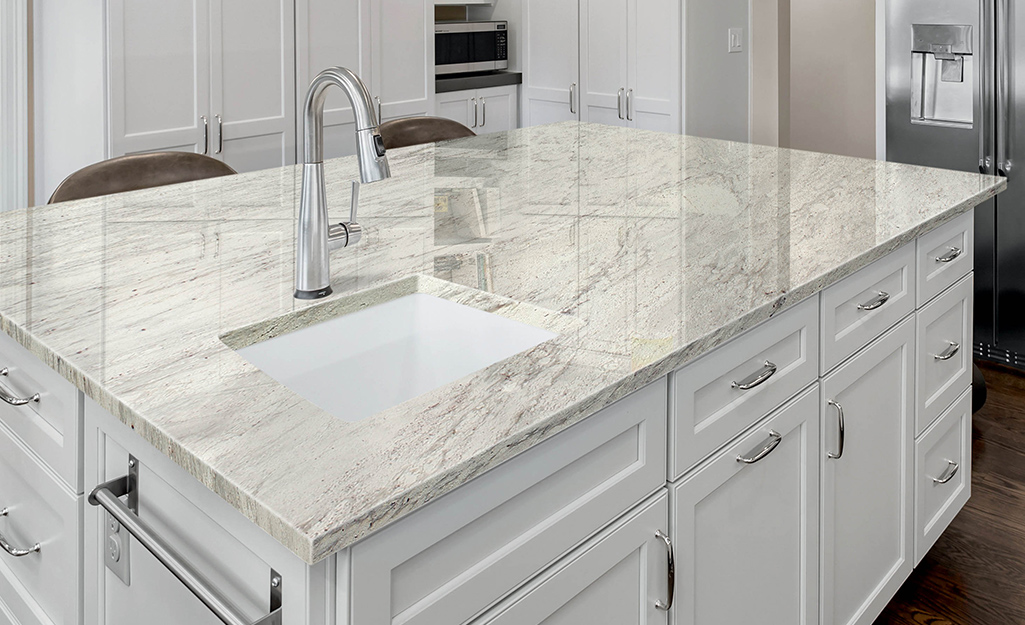 When it comes to designing the perfect kitchen, one of the most important decisions to make is choosing the right kitchen sink. Two popular options on the market are granite and stainless steel kitchen sinks. While both materials have their own unique benefits, granite kitchen sinks offer a number of advantages that make them a top choice for homeowners. In this article, we will explore the differences between granite and stainless steel kitchen sinks and why granite may be the better option for your kitchen design.
When it comes to designing the perfect kitchen, one of the most important decisions to make is choosing the right kitchen sink. Two popular options on the market are granite and stainless steel kitchen sinks. While both materials have their own unique benefits, granite kitchen sinks offer a number of advantages that make them a top choice for homeowners. In this article, we will explore the differences between granite and stainless steel kitchen sinks and why granite may be the better option for your kitchen design.
Durability and Longevity
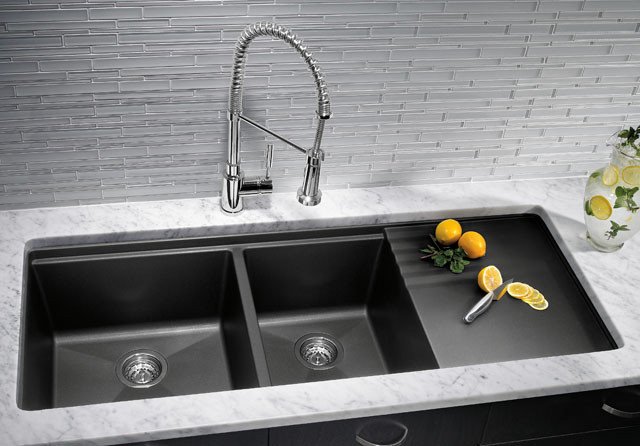 Granite is a highly durable material
, making it an ideal choice for a kitchen sink that is subjected to heavy daily use. Unlike stainless steel, which can easily dent or scratch, granite is able to withstand high temperatures, impacts, and abrasive materials without showing any signs of wear and tear. This means that your granite kitchen sink will maintain its beautiful appearance for many years to come, making it a worthwhile investment for your home.
Granite is a highly durable material
, making it an ideal choice for a kitchen sink that is subjected to heavy daily use. Unlike stainless steel, which can easily dent or scratch, granite is able to withstand high temperatures, impacts, and abrasive materials without showing any signs of wear and tear. This means that your granite kitchen sink will maintain its beautiful appearance for many years to come, making it a worthwhile investment for your home.
Stain and Scratch Resistance
 Granite is a non-porous material
, which means that it is resistant to stains and scratches. This makes it an excellent choice for a kitchen sink, where spills and scratches are common occurrences. With a granite sink, you won't have to worry about unsightly stains or scratches ruining the look of your sink. Plus, the smooth surface of granite makes it easier to clean, saving you time and effort in your daily kitchen maintenance.
Granite is a non-porous material
, which means that it is resistant to stains and scratches. This makes it an excellent choice for a kitchen sink, where spills and scratches are common occurrences. With a granite sink, you won't have to worry about unsightly stains or scratches ruining the look of your sink. Plus, the smooth surface of granite makes it easier to clean, saving you time and effort in your daily kitchen maintenance.
Design Flexibility
 One of the major benefits of choosing a granite kitchen sink is the
versatility in design
options. Granite is available in a wide range of colors and patterns, allowing you to choose a sink that complements the overall design of your kitchen. You can opt for a sleek black granite sink for a modern look or choose a warm, earthy tone for a more traditional feel. Additionally, granite can be shaped and customized to fit your specific kitchen needs, making it a great option for any kitchen design.
One of the major benefits of choosing a granite kitchen sink is the
versatility in design
options. Granite is available in a wide range of colors and patterns, allowing you to choose a sink that complements the overall design of your kitchen. You can opt for a sleek black granite sink for a modern look or choose a warm, earthy tone for a more traditional feel. Additionally, granite can be shaped and customized to fit your specific kitchen needs, making it a great option for any kitchen design.
Overall Value
 While stainless steel kitchen sinks may be a more affordable option upfront,
granite kitchen sinks offer long-term value
for homeowners. As mentioned earlier, granite is a highly durable and low-maintenance material, meaning you won't have to replace your sink as often as you might with a stainless steel one. Additionally, the unique and elegant look of a granite sink can add value to your home and make it stand out to potential buyers in the future.
While stainless steel kitchen sinks may be a more affordable option upfront,
granite kitchen sinks offer long-term value
for homeowners. As mentioned earlier, granite is a highly durable and low-maintenance material, meaning you won't have to replace your sink as often as you might with a stainless steel one. Additionally, the unique and elegant look of a granite sink can add value to your home and make it stand out to potential buyers in the future.
Conclusion
 In conclusion, while both granite and stainless steel kitchen sinks have their own benefits, granite offers durability, stain and scratch resistance, design flexibility, and overall value that make it a top choice for homeowners looking to design their dream kitchen. Consider incorporating a granite kitchen sink into your kitchen design and enjoy its many advantages for years to come.
In conclusion, while both granite and stainless steel kitchen sinks have their own benefits, granite offers durability, stain and scratch resistance, design flexibility, and overall value that make it a top choice for homeowners looking to design their dream kitchen. Consider incorporating a granite kitchen sink into your kitchen design and enjoy its many advantages for years to come.

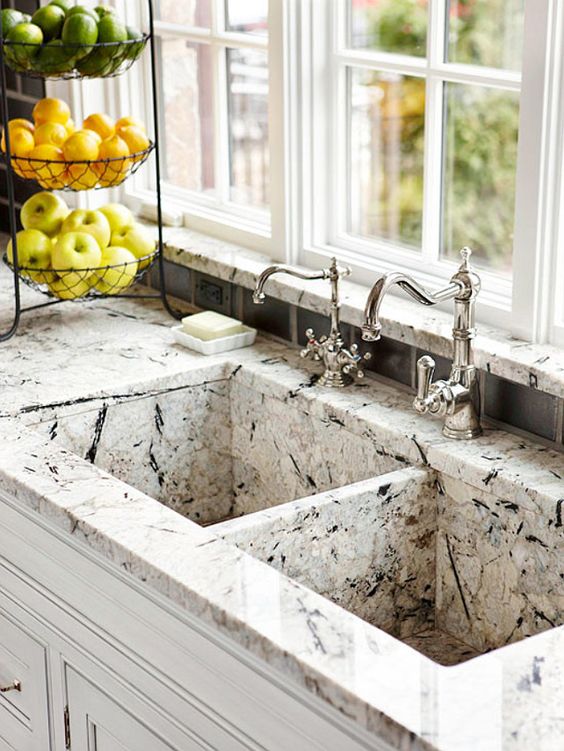

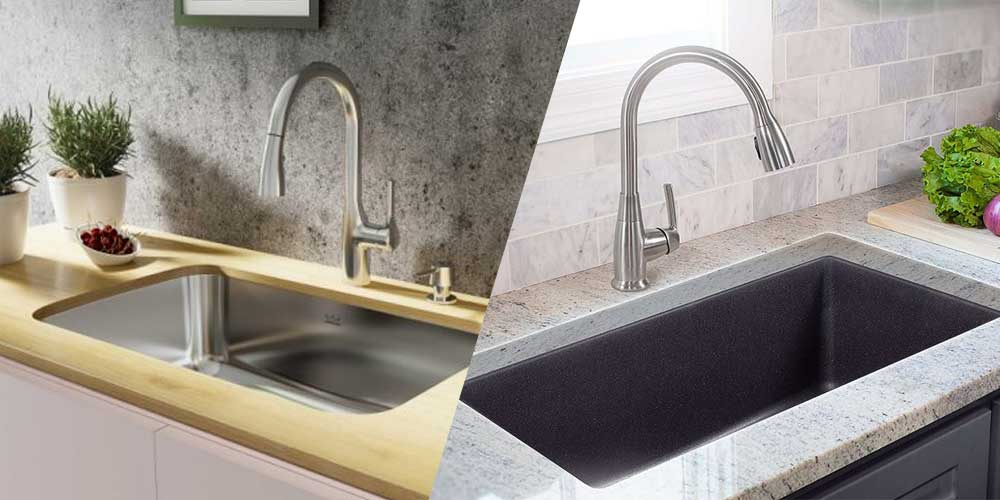
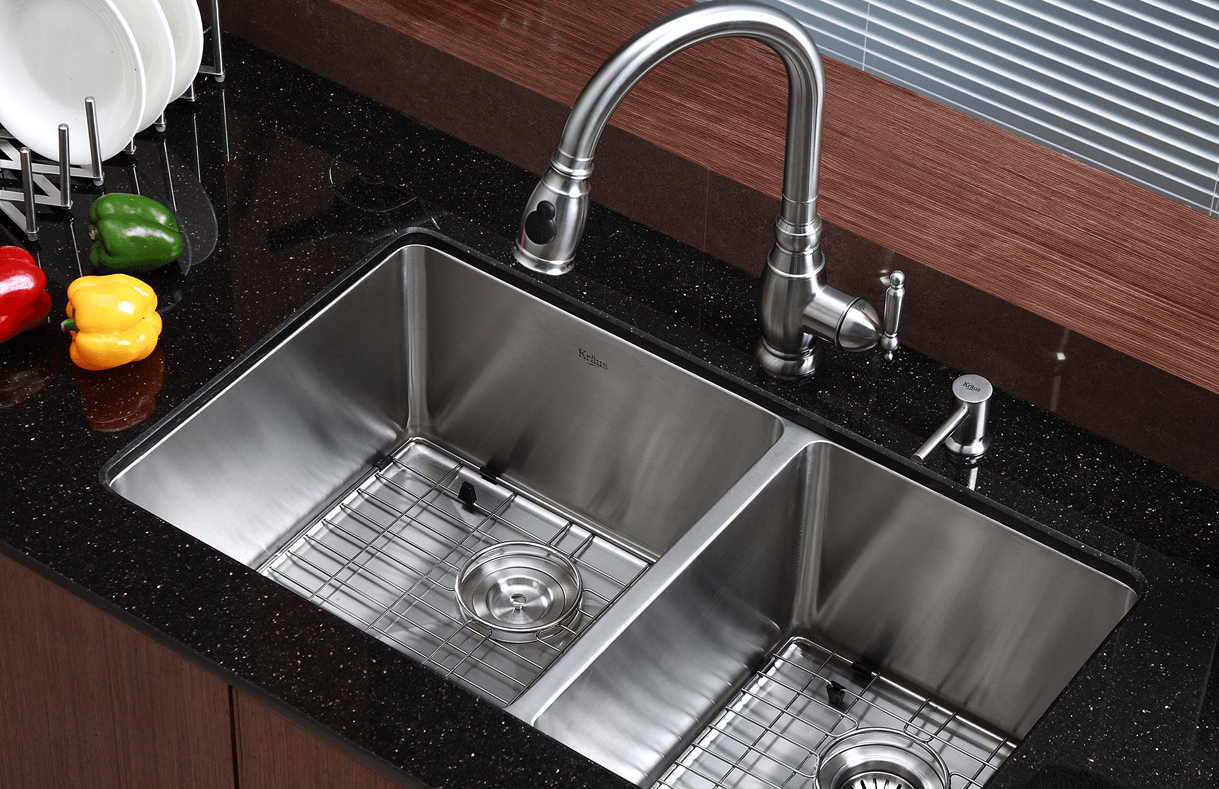
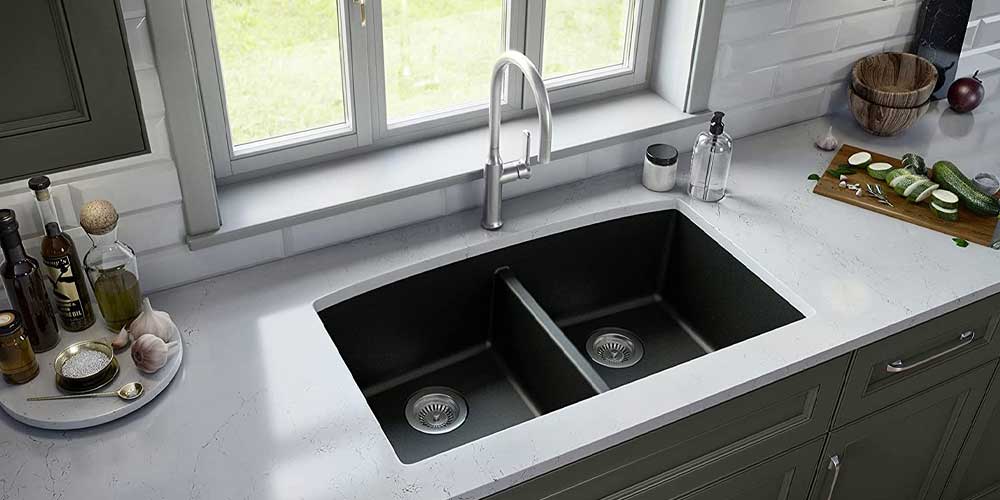
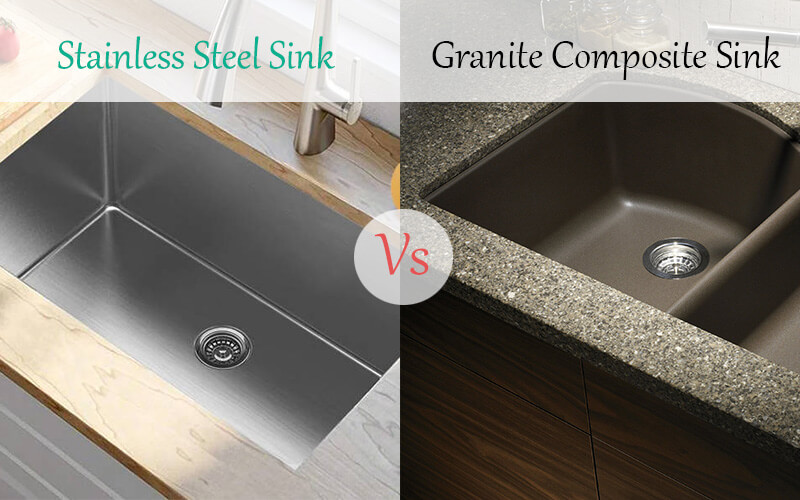


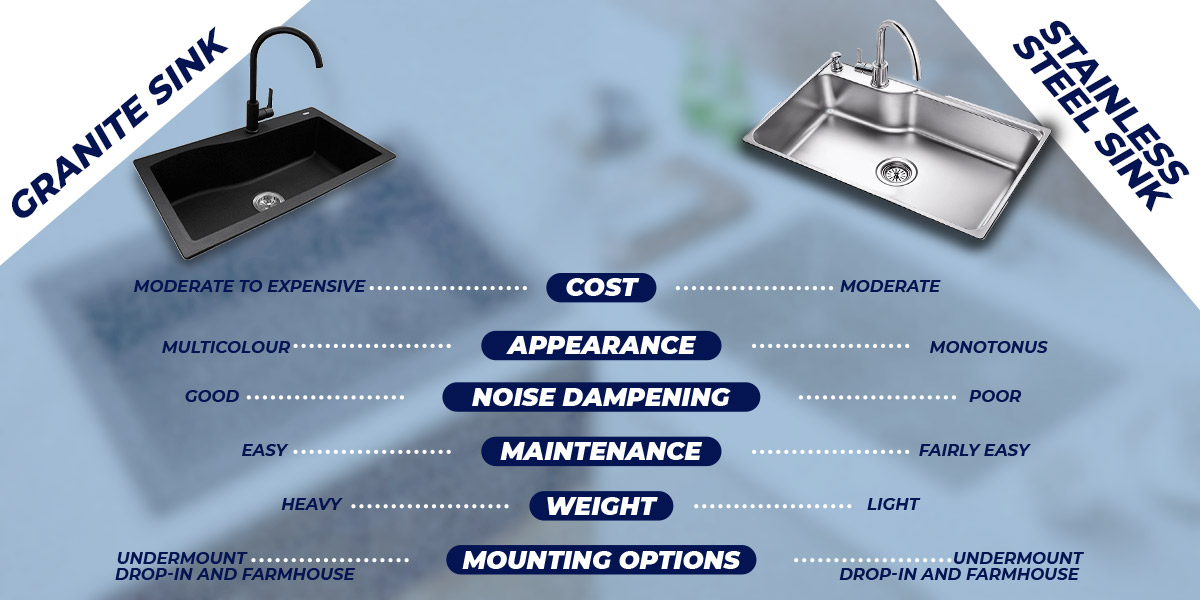





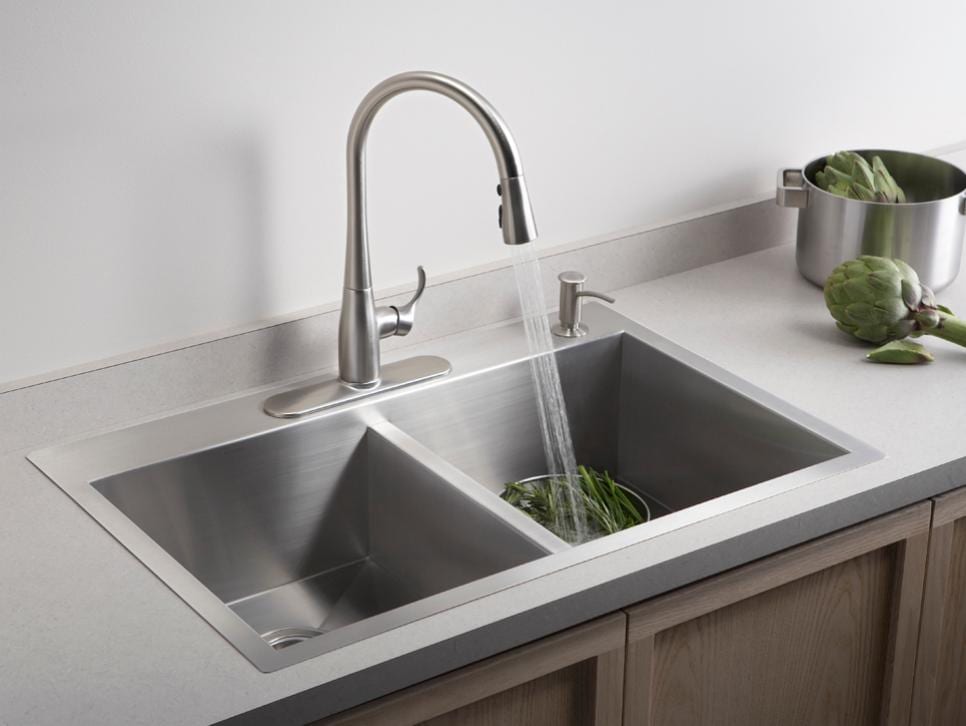













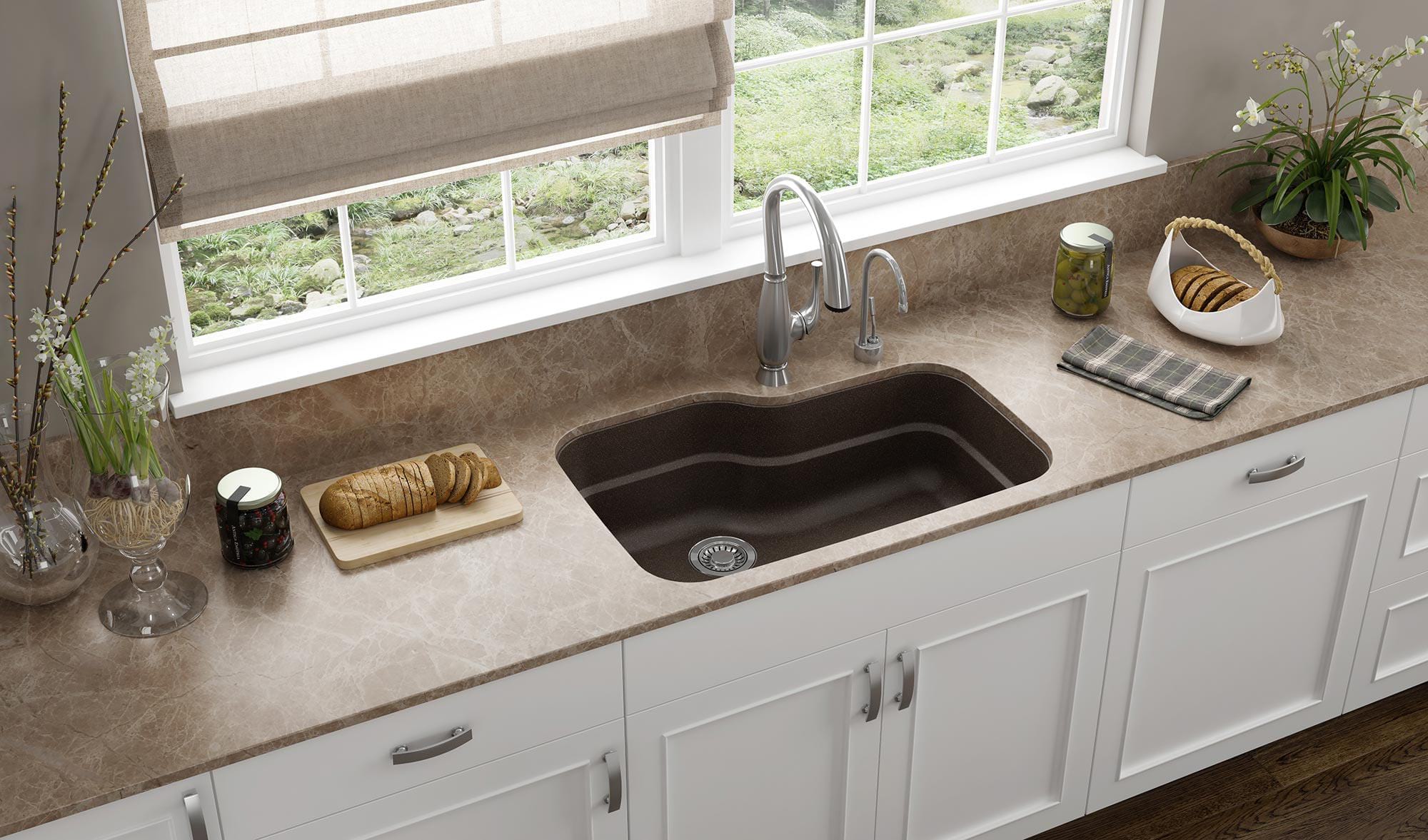


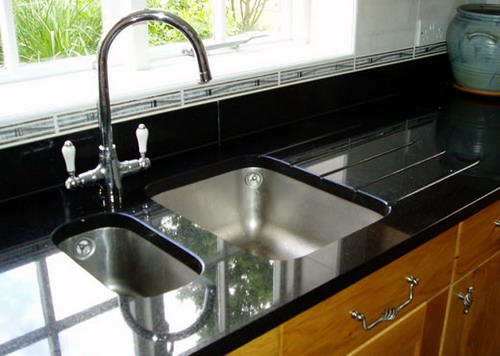
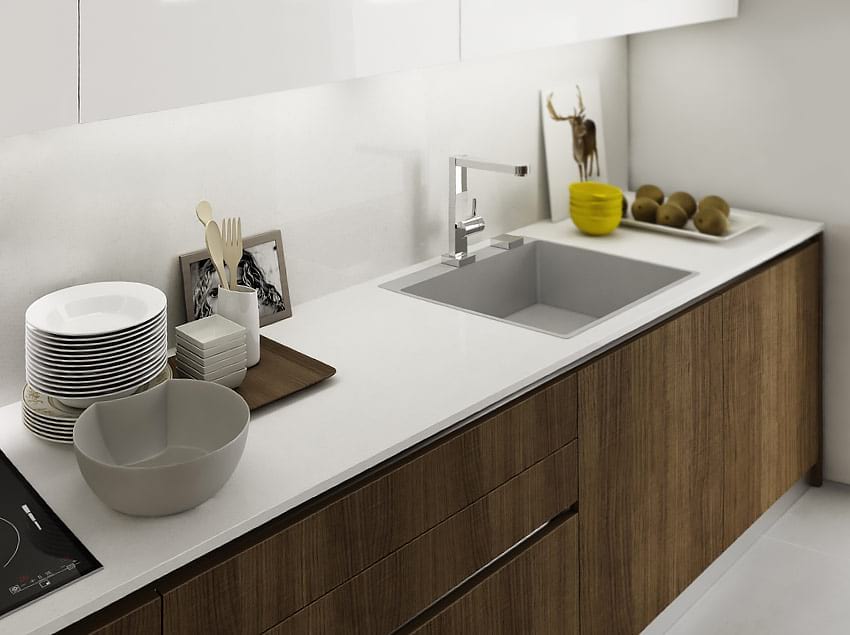

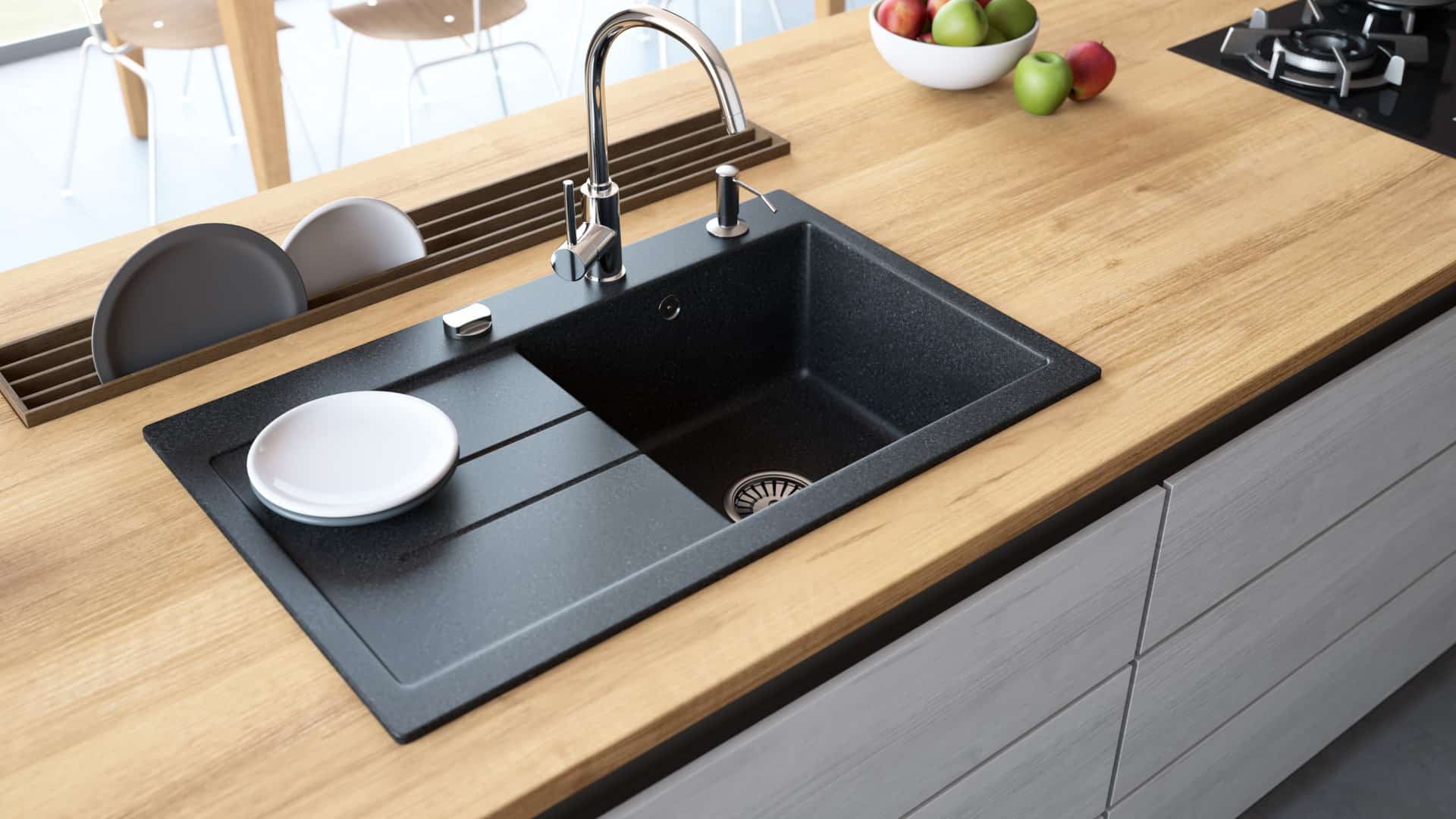








;)



.jpg)








